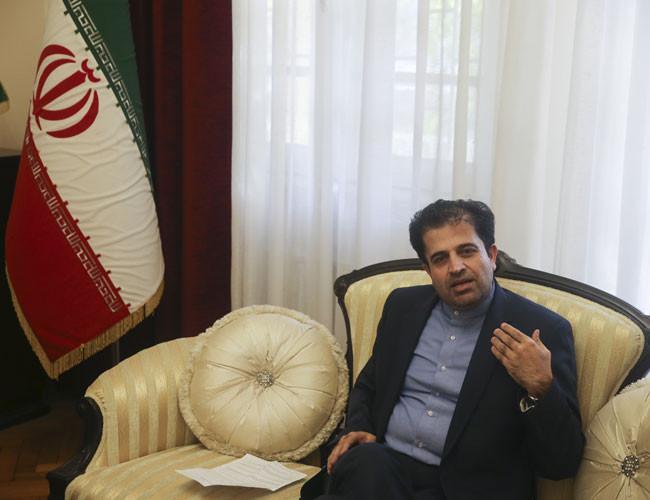
The new U.S. sanctions against Iran can have positive consequences for Turkey, an Iranian diplomat has told state-run Anadolu Agency.
“This is the best opportunity for Turkish companies to increase their presence in Iran. They can use this benefit to conquer the part of the market that was acquired by European and Chinese companies,“ Seyed Hafez Mousavi, the commercial counselor for the Iranian embassy in Ankara, said.
On Nov. 5 the United States re-imposed sanctions targeting Iran’s energy and financial sectors along with its shipping industry. More than 700 individuals, entities, aircraft, and vessels were blacklisted, including 50 Iranian banks and their domestic and foreign subsidiaries.
Washington granted China, Greece, India, Turkey, Italy, Japan, South Korea and Taiwan a 180-day waiver to import Iranian oil, which eased worries of supply reduction in the global markets after the sanctions went into effect.
Mousavi asserted that Turkey and Iran can expand cooperation in sectors such as tourism and investment.
In 2017, bilateral trade volume between Turkey and Iran totaled $10.7 billion, up nearly 11 percent year-on-year.
In the first nine months of 2018 the trade volume was at $7.5 billion.
Turkey mainly exports gold, steel profile, automotive supply products, fiberboard, and land transportation vehicles to Iran while it purchases raw petroleum materials, natural gas, plastics in primary forms, and metals other than iron and organic chemicals from Iran.
Mousavi said sanctions will barely affect the Iranian economy as it’s not totally linked to the international financial and monetary system.
He added that the sanctions can be a good opportunity for Iran to decrease its dependency on oil revenues and to advance its non-oil production exports.
“We are going to implement policies to expand our non-oil production exports and enhance our production capacity,” Mousavi said.
On trade in national currencies with Turkey, Russia and China, he said the issue is on Iran’s agenda.
“We had good negotiations on this issue. They expressed their readiness to use national currency to work with Iranian companies,” he added.
Mousavi said using the Turkish Lira instead of U.S. dollars would also be welcomed by Iranian companies.
“Turkey is our main partner and neighbor, we prefer to use the lira instead of the dollar,” he said.